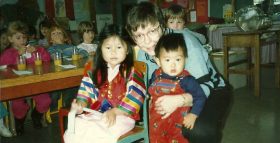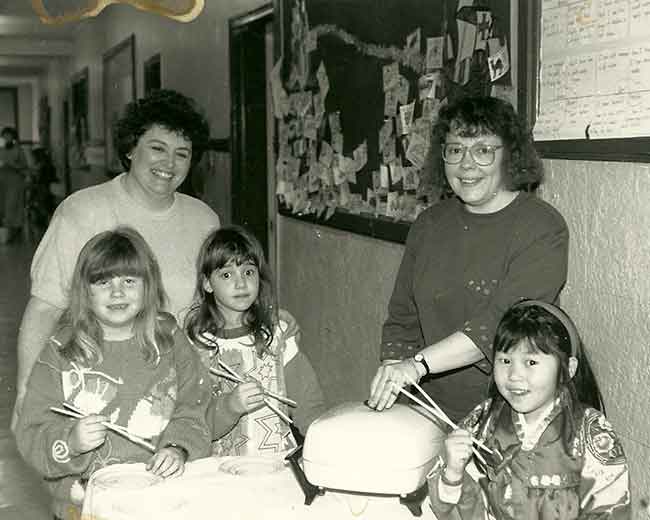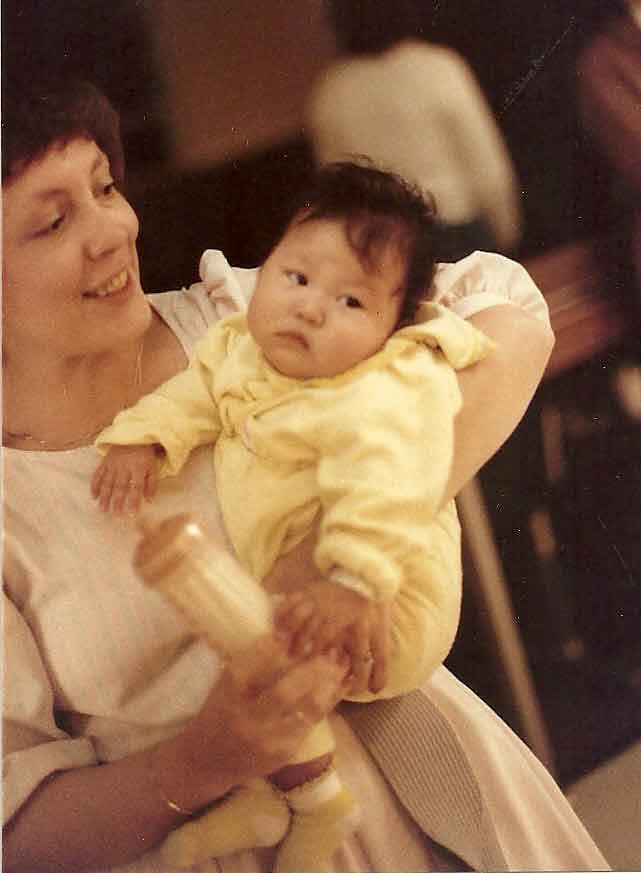My mom died in August 2008, never getting the chance to see President Obama elected. Like many ambiguously Democratic households, I was pro-Obama and she was more of a Hillary person. I like to think that, after a few more mother-daughter debates, she would have found herself solidly in the Obama camp.
Amid all of the media parsing of identity and voter trends at that time, I believe the fact that my mom was a white Baby Boomer and that I identified as a transracial Korean adoptee 33 years her junior informed our candidate preferences on a fundamental level. Race never stopped mattering in our family.
I moved to Seoul in 2009, after my mom died from lung cancer. There is a vibrant Korean adoptee community there, and I was eager to become more involved in it. I grew up with many other adoptees as friends and classmates in my small and predominantly white town in Upstate New York.
As I met more adoptees in Seoul, I found out how rare my upbringing was; most others grew up in complete racial isolation, both in America and in “progressive” countries like Denmark, France and Germany. Moreover, as I shared my story, I realized that my mother was unlike most of the others’ white adoptive mothers, who were often remembered as intensely insecure about their fertility, identity and their transracial relationship to their children.
I met adopted activists and scholars who were living in Korea for personal reasons and as a political statement. Some of them were estranged from their adoptive parents. Through reading and discussion, a macro view of Korean adoption emerged that centered around forces of misogyny, poverty, religion, neocolonialism and racism. This view overshadowed the more sentimental, mainstream narrative that adoption was an individual act of altruism.
So it is not surprising that many adoptive parents often are defensive about their choice to adopt — unwilling to wrestle with the idea that their sons and daughters may have been unnecessarily separated from their first families. This conflict, understandably, may place adoptees at ideological odds with their adoptive parents.
This dynamic is often played out and examined at adoption conferences, in Facebook groups, on Twitter, and in blog comment threads. It also inevitably affects adoptees’ personal relationships with their own adoptive parents. As I began to engage in these spaces, I felt increasing pressure to reject not only white adoptive parents as a group but also my own parents, specifically.
But my body was still full of grief; my brain and heart were so consumed that I was experiencing short-term memory loss. I was unable to reject my own mother. I had just bathed her brittle body, fed her ice chips, and watched her last, shuttered breaths escape from her chest. The idea of reconciling my love for my mother — and my grief, following her death — with the problems with international adoption that white and privileged parents have helped create was overwhelming to me.
As performer and voice teacher, I have used sound and song to keen and grieve in a powerful way that goes beyond talking and writing about it. In sound, I am able to give voice to both my grief for my mother and my adoption trauma that doesn’t have to be justified or explained. As a performer, I have used breath and physical release to address the emotions and pain trapped deep within my body. Cultivating a mindset of abundance has allowed me to make space for both my grief and my passion for social justice. So I have created space for my ideologies, the work that I do and my love for my mom to co-exist.
I realize that the type of person my mom was makes it easier to justify this; she was a fierce supporter and defender of my Korean-adopted brother and me when it came to the racist and adoption-related microaggressions we experienced growing up. When the bullying in kindergarten began, we approached my teacher about educating my classmates about Korea and my adoption. I was too young to realize that she was acting as an ally, giving me space and empowering me to be the authority of my own adopted identity. She may have contributed to an oppressive system by adopting, but she was using her white privilege to push back against it, and that was worth something.
I have the luxury of only imagining how she’d react to my increasing awareness of and work to promote social justice. Others have watched their white friends and family grow uncomfortable and defensive when we bring up issues like adoption, white privilege, the exclusive nature of white feminism and cultural appropriation in pop culture. My mom’s belief in me made me exactly the type of person to fight for the right to be heard. And I choose to believe that she would continue to support the work that I’m doing, even if it were difficult or uncomfortable for her to come to terms with it.
Amy Mihyang Ginther is an actor, writer and voice/acting coach, who has lived, taught and performed in the U.S., the U.K., Argentina, the Czech Republic, Ireland and South Korea. She is the founder and owner of Vocal Context.










